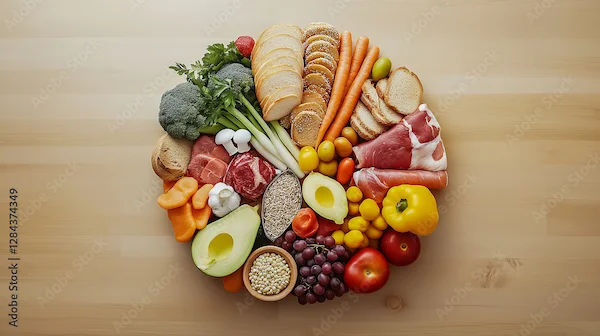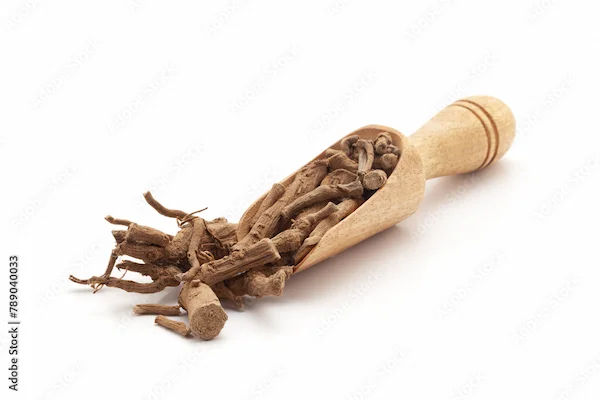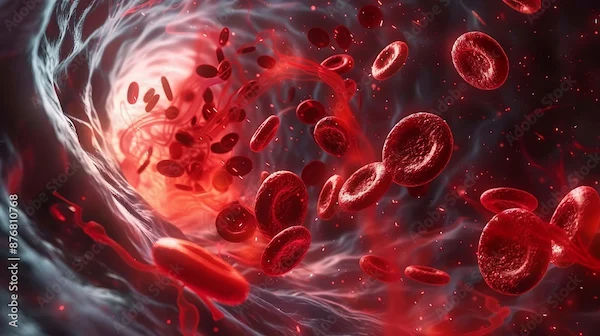High-Fibre Foods Chart For Constipation Relief
Relieve constipation naturally with this high-fibre foods chart. Discover top fibre-rich fruits, vegetables, grains, and legumes to improve digestion, support gut health, and promote regular bowel movements.

Written by
Last updated on 21st Jul, 2025

Introduction
Constipation is a common digestive issue that affects people of all ages. If you’re struggling with irregular bowel movements, discomfort, or bloating, increasing your fibre intake can help. Fibre adds bulk to your stool, making it easier to pass.
In this article, we’ll explore a high-fibre foods chart to relieve constipation naturally, along with simple dietary tips to improve digestion.
What is Fibre and Why is it Important?
Fibre is a type of carbohydrate found in plant-based foods that our body cannot fully digest. There are two types of fibre:
1. Soluble Fibre: Dissolves in water, forming a gel-like substance that softens stool (found in oats, apples, beans).
2. Insoluble Fibre: Adds bulk to stool, helping it move faster through the intestines (found in whole grains, vegetables, nuts).
A diet rich in both types of fibre promotes regular bowel movements, prevents constipation, and supports gut health.
High-Fibre Foods Chart for Constipation Relief
Here’s a simple high-fibre foods chart categorised by food groups to help you choose the best options:
1. Fruits (Best for Natural Laxative Effect)
Apples (with skin): 4g fibre per medium apple
Pears: 5.5g fibre per medium pear
Bananas: 3g fibre per medium banana
Berries (raspberries, blackberries, strawberries): 4-8g fibre per cup
Prunes & Figs: 3-7g fibre per serving (great natural laxatives)
2. Vegetables (Rich in Insoluble Fibre)
Broccoli: 5g fibre per cup (cooked)
Carrots: 3.5g fibre per cup (raw)
Spinach: 4g fibre per cup (cooked)
Sweet Potatoes (with skin): 4g fibre per medium potato
Brussels Sprouts: 4g fibre per cup
3. Whole Grains (Excellent for Digestion)
Oats: 4g fibre per ½ cup (dry)
Brown Rice: 3.5g fibre per cup (cooked)
Quinoa: 5g fibre per cup (cooked)
Whole Wheat Bread: 2-3g fibre per slice
Bran Cereal: 7-10g fibre per serving
Consult Top Dietitians For Personalised Diet
4. Legumes & Beans (High in Soluble Fibre)
Lentils: 15g fibre per cup (cooked)
Black Beans: 15g fibre per cup (cooked)
Chickpeas: 12g fibre per cup (cooked)
Kidney Beans: 11g fibre per cup (cooked)
5. Nuts & Seeds (Healthy Fibre Boosters)
Chia Seeds: 10g fibre per ounce
Flaxseeds: 3g fibre per tablespoon (ground)
Almonds: 3.5g fibre per ounce
Pumpkin Seeds: 5g fibre per ounce
How Much Fibre Do You Need Daily?
The recommended daily fibre intake is:
Men: 30-38g
Women: 21-25g
If you’re not used to a high-fibre diet, increase intake gradually to avoid bloating or gas.
Tips to Relieve Constipation Naturally
1. Drink Plenty of Water: Fibre works best when paired with fluids (aim for 8-10 glasses daily).
2. Exercise Regularly: Physical activity stimulates bowel movements.
3. Eat Fibre-Rich Meals: Include fruits, vegetables, and whole grains in every meal.
4. Limit Processed Foods: Low-fibre foods like white bread, cheese, and fast food worsen constipation.
5. Try Natural Laxatives: Prunes, flaxseeds, and warm lemon water can help.
When to See a Doctor?
If constipation persists despite dietary changes, or if you experience:
Severe pain
Blood in stool
Unexplained weight loss
No relief after 2-3 weeks
If constipation is a recurring issue, consider speaking to a gastroenterologist or a nutritionist. You can book a consultation or digestive health check-up through Apollo 24|7 for expert guidance.
Conclusion
A fibre-rich diet is one of the best ways to prevent and relieve constipation naturally. By including a variety of fruits, vegetables, whole grains, and legumes in your meals, you can support healthy digestion and improve overall well-being.
Start small, stay hydrated, and make fibre a regular part of your diet for long-term relief!
Would you like a personalised meal plan for constipation relief?
Consult Top Dietitians For Personalised Diet
Consult Top Dietitians For Personalised Diet

Ms. Sreeparna Dey Dhara Deb
Dietician
8 Years • Master of science and dietetics
Bansdroni
Siddhita Healthcare., Bansdroni

Ms Suchanda Guha
Dietician
10 Years • M.Sc (Applied Nutrition), B.Sc (Food & Nutrition), Diploma (Yogic Nutrition)
Kolkata
NutriKutir, Kolkata

Ms Suvashree Bhattacharya
Dietician
7 Years • Allied Healthcare professional
Dumdum
Sigma Health Care, Dumdum

Ms. Soma Saha
clinical nutrition
17 Years • B.Sc. - Home Science (Food & Nutrition), M.Sc. - Home Science (Food & Nutrition)
Kolkata
Dr Utsa Basu Clinic, Kolkata
(25+ Patients)
Ms Sumaiya Petiwala
Dietician
17 Years • Allied Healthcare professional
Bengaluru
Dr Sumaiya's NutriCare Best Nutrition Clinic, Bengaluru
Consult Top Dietitians For Personalised Diet

Ms. Sreeparna Dey Dhara Deb
Dietician
8 Years • Master of science and dietetics
Bansdroni
Siddhita Healthcare., Bansdroni

Ms Suchanda Guha
Dietician
10 Years • M.Sc (Applied Nutrition), B.Sc (Food & Nutrition), Diploma (Yogic Nutrition)
Kolkata
NutriKutir, Kolkata

Ms Suvashree Bhattacharya
Dietician
7 Years • Allied Healthcare professional
Dumdum
Sigma Health Care, Dumdum

Ms. Soma Saha
clinical nutrition
17 Years • B.Sc. - Home Science (Food & Nutrition), M.Sc. - Home Science (Food & Nutrition)
Kolkata
Dr Utsa Basu Clinic, Kolkata
(25+ Patients)
Ms Sumaiya Petiwala
Dietician
17 Years • Allied Healthcare professional
Bengaluru
Dr Sumaiya's NutriCare Best Nutrition Clinic, Bengaluru




